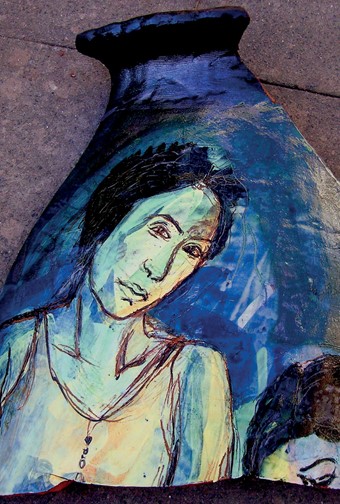By Jo Thompson, External Affairs Manager, women@thewell (CSAN member charity)
On 8 March 2022 we mark International Women’s Day with the theme “Gender equality today for a sustainable tomorrow”.
The definition of gender equality is, ‘the state in which access to rights and opportunities is unaffected by gender’.
It is important to keep in mind the collective hard work and commitment of women and men who work to rectify inequality, with faith that one day we will achieve true gender equality in the world and a fairer, more just society for women and girls. On International Women’s Day, we reflect on the incredible achievements of women and girls around the world, day after day, week after week, year after year, against all odds. As we emerge from a global pandemic, the full impact of which we have still to comprehend, the need for gender equality is at the forefront of many minds.
Trauma informed support and exit services such as women@thewell understand all too well the inequalities women face daily. Women entrapped in the sex trade shine a stark light on inequality faced by women, leading to disadvantage, exploitation and abuse.
In our daily support service provision, focusing on breaking down the barriers to exiting prostitution, gender equality is the beating heart of our organisation. Demanding more for women, a life to flourish and grow, with choices which come from a place of freedom instead of survival. Providing women with trauma informed advocacy and support to live a life free of exploitation, abuse and disadvantage. Overcoming each barrier levels the playing field and forms the building bricks to exit a life of oppression.
With a commitment to working towards full abolition of the sex trade, lobbying and campaigning for the introduction of legislation to protect women sold into prostitution and the wider sex trade remains high on the agenda for women@thewell. We believe that the only possible option to keep women safe and protected is by the introduction of a legal framework that sends a clear message – women are not saleable objects. In a world where prostitution exists, we will never achieve true gender equality. As Fiona Broadfoot, a survivor of internal human trafficking and prostitution says,
‘The UK needs to criminalise men who abuse women through prostitution because it is the demand creates the supply. Without demand from these men there would be no supply of vulnerable women and girls to be bought and sold.’
Experience delivering frontline services indicates strongly that the abolitionist model, alongside provision of holistic exiting services, is essential to break down barriers and enable women to exit prostitution. Shaping a society in which commercialised, one-sided sexual gratification has no place.
During the pandemic, women@thewell and Dr Pat Jones collaborated on a research paper listening to the voices of women entrapped in the sex trade, as well as some of the professional staff who provide support services. The resulting report is unusual in that it is not primarily focused on the facts of the women’s situations, but with how the women make sense of their lives. In particular, it reflects on what freedom means in their own lives and on issues such as safety, survival and solidarity. Listening to the women’s voices enabled an understanding of the damage done by prostitution as a tolerated social structure. The women’s voices are full of anguish, courage, resilience and morality. The report will launch during the sixty-sixth session of the Commission on the Status of Women taking place from 14 to 25 March 2022. More details will follow on our website.
The research had a dual aim – to listen to the women and amplify their insights and stories, while also bringing them into dialogue with Catholic Social Teaching, and theological and political ethics. The report touches lightly on how CST principles inform that dialogue, but also draws on valuable resources from social sciences and other sources.
These are among the women’s voices that society must listen to, in order to effect true progression and change leading to gender equality.
This International Women’s Day let us celebrate together the women we know, and the women we have yet to meet, in the knowledge that on a small or large scale they all achieve great feats.
The views expressed in this blog are not a statement of CSAN policy.


You must be logged in to post a comment.